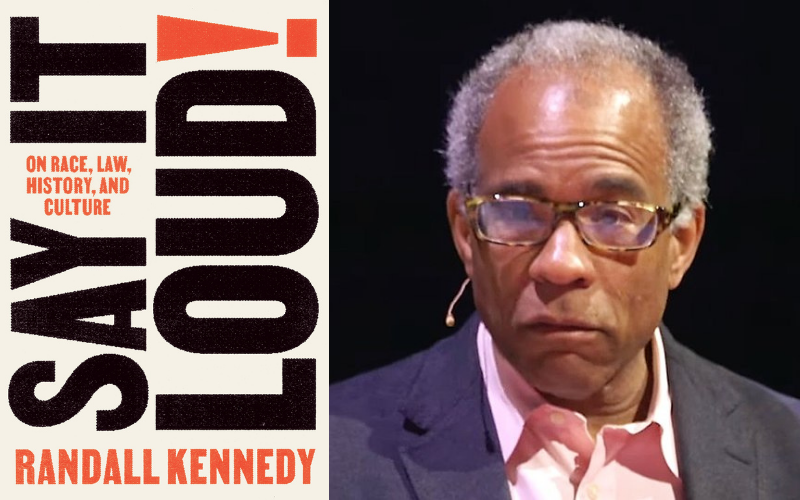Randall Kennedy
Say It Loud!: On Race, Law, History, and Culture
Pantheon Books/Random House, 2021
528 pages
Harvard Law School professor Randall Kennedy titles his latest book, Say it Loud!, after the James Brown song, but he mostly uses measured language and carefully reasoned arguments to describe how “racism continues to be a major force in America” despite what he calls the inspirational African American journey from slavery to freedom.
The book is subtitled, “On Race, Law, History and Culture,” and Kennedy integrates all those subjects in 29 essays–some new, some updated. As a law professor, he leans on landmark civil rights U.S. Supreme Court rulings but manages to make the book engaging and readable to the non-lawyer. With the exception, perhaps, of Justice Thomas Clarence, whom he lambastes in a chapter titled, “Why Clarence Thomas Ought to Be Ostracized,” he takes an even-handed approach to major racial developments and Black figures throughout American history.
In “Should We Admire Nat Turner?” for example, Kennedy asks whether Turner–the leader of a bloody slave rebellion in 1831–should be “lauded as a hero, dismissed as a lunatic, condemned as a criminal, or categorized in some other fashion.” His position: Turner “warrants our sympathy but not our praise” because of the rebels’ indiscriminate killing. “By demanding that Turner and his fellow insurrectionists meet minimal standards of decency, we morally elevate slaves who are all too often unwittingly demeaned by their champions,” he writes.
Kennedy devotes his two longest chapters to the first Black U.S. Supreme Court Justice, Thurgood Marshall, for whom he clerked in 1983, and fellow Harvard Law professor Derrick Bell, “celebrated…as the godfather of critical race theory (CRT).” As with just about everyone, he admires and disagrees with both.
In his chapter, “Black Power Hagiography,” he dwells mostly on the champions of using “any means necessary,” in their campaigns for Black liberation. He concludes that while Malcolm X, Stokely Carmichael, Huey Newton, and Bobby Seale tried against huge obstacles to fight racial injustice, their efforts were, in the end not very effective.
Jumping to the present, Kennedy reviews Isabel Wilkerson’s 2020 book, Caste: The Origins of Our Discontents. While acknowledging that “Caste is an elaborate reminder of things that many Americans of all races would just as soon forget,” he concludes, “Wilkerson’s deployment of the idea of caste, however, sheds little new light on our understanding of racism.”
In the final chapter, Kennedy explains that putting together this collection of essays has changed his thinking about achieving “a racial promised land,” making him less optimistic. “I view these conflicted beliefs and fragmented practices more charitably now than I have in the past,” he says. “Maybe the best that can safely be managed are smaller, though significant interstitial goals that are attentive to the pluralism that infuses American practices… yearning for racial promised lands alongside pragmatic acceptance of decent compromises.”
-Review by Shelley Stanfield


